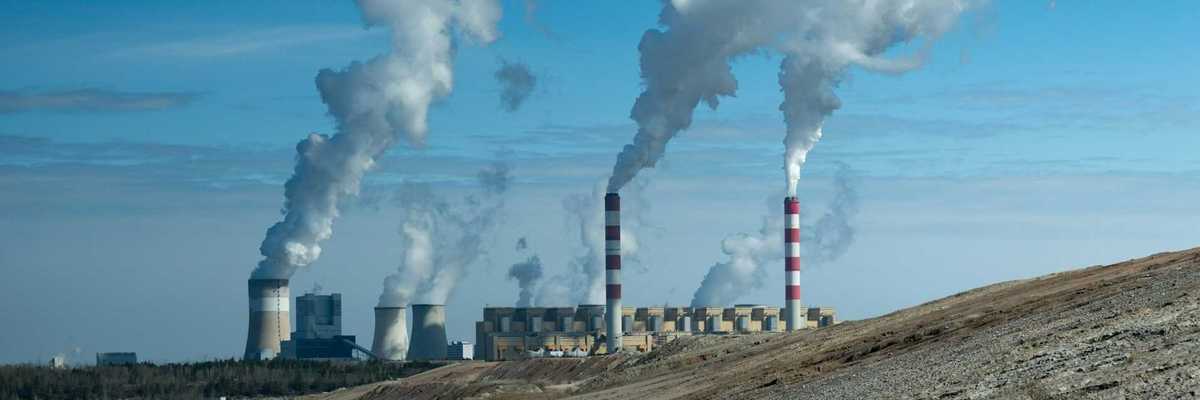credits
BP's carbon credits questioned for lack of real climate benefit
A satellite analysis revealed that Finite Carbon, a BP-owned company, sells carbon offsets for forests that are not at risk of deforestation, raising concerns about their true climate impact.
Luke Barratt reports for SourceMaterial in partnership with Miranda Green reporting for Floodlight.
In short:
- Finite Carbon, responsible for a significant portion of U.S. carbon credits, faces criticism for selling offsets on trees unlikely to be cut down.
- Experts found that 79% of credits from key projects, valued at $334 million, should not have been issued.
- The analysis highlights systemic flaws in California’s cap-and-trade system, allowing companies to exploit offset protocols.
Key quote:
“We don’t think that the project should have been allowed to proceed and earn credits.”
— Elias Ayrey, head scientist at Renoster
Why this matters:
Carbon offsets are intended to reduce net emissions, but flawed credits undermine this goal, allowing continued pollution.
Fixing the flawed carbon offset market with a new approach to coal plant shutdowns
Amid growing scrutiny over the effectiveness of carbon offsets, a major philanthropic organization announces a groundbreaking plan to authenticate their impact by phasing out coal plants in Asia.
In short:
- The carbon offset market is in disarray, with many credits failing to effectively counteract emissions as claimed.
- The Rockefeller Foundation is launching an initiative to create credible offsets by closing down coal plants in Asia.
- This effort aims to provide verifiable environmental benefits and support for communities affected by plant closures.
Key quote:
“There has been a lot of sloppy thinking [in the offset industry]. It has lead to bad practices and over crediting.”
— Joseph Curtin, managing director, Rockefeller’s Power and Climate Team
Why this matters:
A robust offset market can provide the financial mechanisms needed to transition to cleaner energy sources. Strengthening the market could help accelerate the retirement of coal plants by ensuring that investments in offsets lead to permanent reductions in greenhouse gases, thus contributing more effectively to the fight against climate change.
Flush with the promise of tax credits, clean energy projects are booming in Texas
In the year since the Inflation Reduction Act became law, private investment in wind power, battery storage and other renewable energy ventures has significantly expanded. Analysts suggest that the act’s 10-year tax incentives are seeding confidence in the sector’s stability.
We should pay people for driving EVs, not for buying them
The current design of government subsidies for purchasing electric vehicles (EVs) isn’t economically efficient, according to a new analysis. The study suggests that replacing broad-based subsidies with more targeted rather ones would offer a bigger carbon-savings bang for the public buck.
How the Clean Air Act lets closed coal plants keep polluting for years
A loophole allows power plants to collect emissions allowances after they close, and there is a huge volume of credits on the market that will take years to work their way through the system.
In a nutshell:
A loophole in clean-air regulations allowed a coal plant to collect emissions allowances for five years after it shut down and then sell those credits to other plants, including the largest emitter of smog-causing gas in the U.S. power sector. This practice has raised concerns about the effectiveness of cap-and-trade programs in reducing air pollution. The Environmental Protection Agency has recently reduced the number of years that retired facilities can collect allowances from five to two, but a large volume of credits from closed plants is still in circulation, leading to a glut in the market and potentially encouraging pollution.
What they said:
Elena Krieger, who oversees scientific research at PSE Healthy Energy, a California-based policy institute, was shocked when she learned about the retired-plant credits. “I was unaware of the practice and am somewhat horrified,” Krieger said.
Big picture:
A provision in a proposed climate change policy could provide a credit windfall to companies closing down polluting plants. This provision allows these companies to sell their allowances for emissions, as they are no longer generating pollution themselves. This has raised concerns among environmentalists who argue that it could undermine the effectiveness of the policy in reducing overall emissions and combating climate change.
Plastic pollution credits could be the new carbon offsets
Humanity has produced over 9.5 billion metric tons of plastic. That’s over one metric ton, aka 2,200 pounds, per each of the Earth’s 7.9 billion inhabitants. That plastic doesn’t go away.









